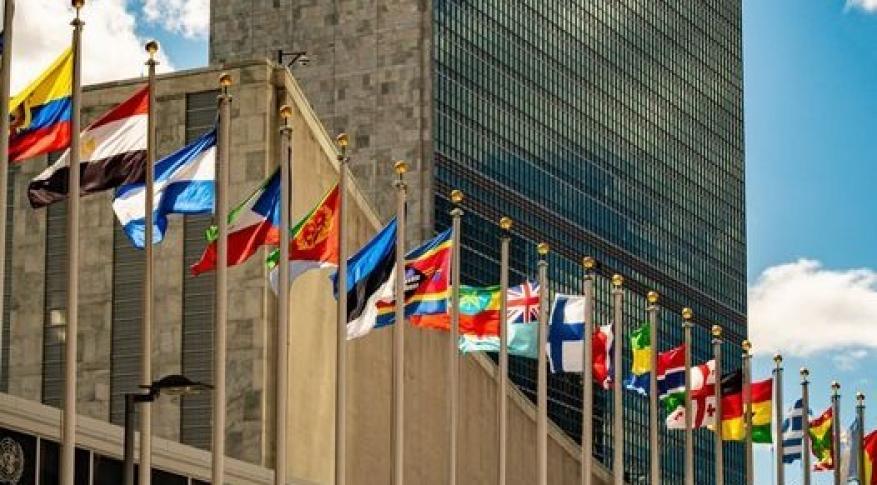
Informal, intersessional meetings
Thematic session: Capacity building
8 December 2022
Delivered by Verónica Ferrari, APC Global Policy Advocacy Coordinator
Distinguished Chair, delegates, colleagues,
My name is Verónica Ferrari and I speak on behalf of the Association for Progressive Communications (APC) and Global Partners Digital (GPD). APC is an international civil society organisation and a network of members working for peace, human rights, development and protection of the environment, through the strategic use of digital technologies. GPD is a civil society organisation working to build a digital environment underpinned by human rights.
We welcome the opportunity to engage in this discussion. In our intervention, we will focus on the guiding question on how states can raise awareness of the gender dimensions of security of and in the use of ICTs and promote gender-sensitive capacity building at the policy level as well as in the selection and operationalisation of relevant projects.
In previous statements and inputs, and together with other civil society organisations, we recognised the importance of the principles of gender-sensitive and inclusive cyber capacity building from the first OEWG final report.
Capacity-building initiatives that do not incorporate such a perspective are likely to perpetuate gender inequality and discriminatory practices by failing to protect those at risk of marginalisation. We know that gaps in terms of cyber capacities may create, perpetuate or amplify differentiated vulnerabilities.
To promote this approach, we recommend that the OEWG discuss what gender-sensitive capacity building means and provide more practical recommendations to states.
The most recent edition of the African School on Internet Governance (AfriSIG), an APC capacity-building initiative designed, developed and run by colleagues in and from Africa together with partners such as the African Union and Global Partners Digital, was specifically dedicated to strengthening capacity in international cybersecurity. It included a discussion focusing on gender-responsive capacity building. From this event and building on our experience, some practical recommendations can include:
-
Ensure meaningful participation of women, LGBTIQ+ and gender-diverse people to inform capacity-building projects, activities, approaches and outcomes. Participation should be in the design, implementation and evaluation of these initiatives.
-
Apply an intersectional approach to capacity building to better identify and respond to how multiple aspects of identity (such as race, caste, ethnicity, sexual orientation, age, ability, etc.) work together with gender to reproduce patterns of marginalisation and exclusion.
-
Adopt a “whole of society” approach to capacity building, engaging community and traditional leaders.
-
Empower marginalised groups and women with the needed resources so that they can fully participate in cyber capacity building. A patronising approach reinforces patriarchal norms; capacity-building efforts in this regard should prioritise enhancing agency and autonomy.
-
An evidence-based and tailored approach is key for gender-sensitive capacity building and to respond to the specific needs of affected populations. This includes integrating gender into capacity building as it relates to the rest of the acquis, including agreed norm implementation. For example, at AfriSIG it was suggested that incident response teams could conduct gender analyses and work with other stakeholders to integrate gender-disaggregated data practices into their work.
-
Gender sensitivity workshops with policy makers dealing with cybersecurity policies and strategies where they get an overview on the basic concepts of gender and gender equality and the interrelations with cybersecurity could be another practical step. Our experience shows that while policy makers are able to grasp the issues of gender and cybersecurity separately, analysing the relationship between these two issues is still a new terrain.
For this, and as expressed in previous statements, states can build on the work that non-governmental stakeholders are doing in capacity building. Civil society groups have been exchanging good practices and learning from each other on these issues at community, national and international levels.
Thank you for your attention and we look forward to continuing to engage in this process.